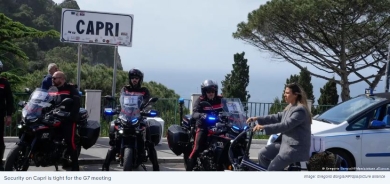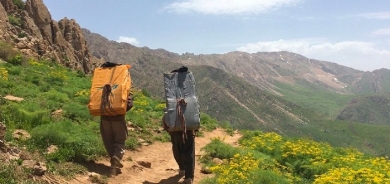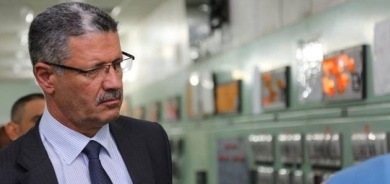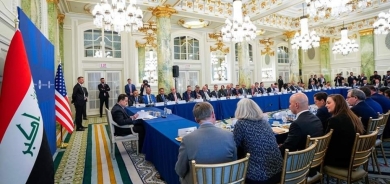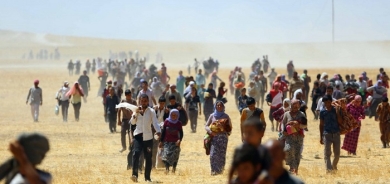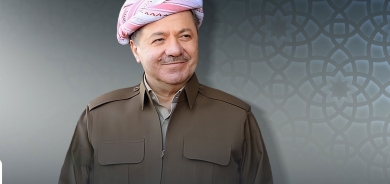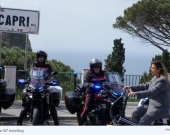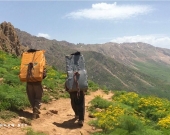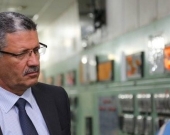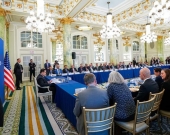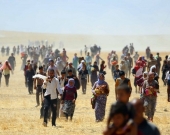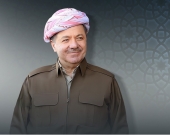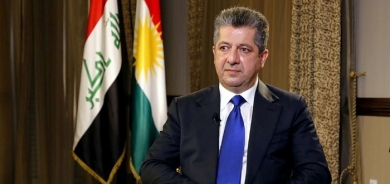Polish Prime Minister Morawiecki: 'no open door policy' on migration
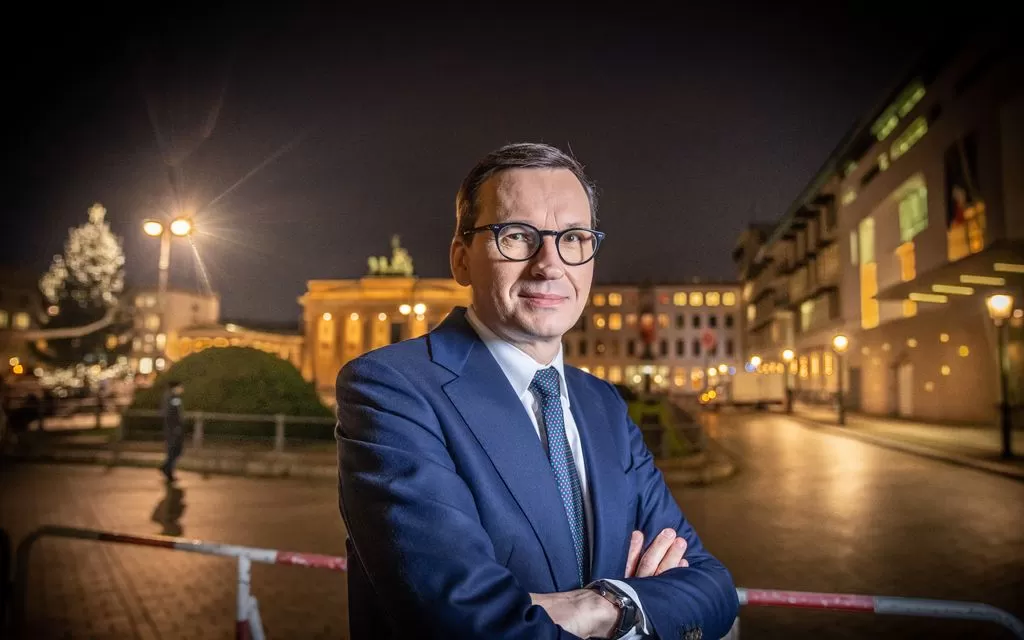
Poland is grappling with a growing crisis on its borders with Belarus as migrants seek to enter the EU. This is not the country's only challenge, however, as the Prime Minister describes fears about the future, such as Nord Stream 2 - and concerns about the past, and the question of reparations from Germany.
Poland is at the heart of the spiralling migration crisis in Europe, with thousands of people stranded at its borders that many say have been brought there deliberately by Minsk in retaliation for EU sanctions.
Tensions have been high for weeks as migrants from Iraq, Yemen, Syria, Afghanistan or Iran seek to cross the EU's external border. Meanwhile, a humanitarian crisis is quickly developing as those in informal encampments suffer from plummeting temperatures.
Poland has responded by strengthening its border, building new structures and adding extra personnel.
As Germany's new government takes shape, Prime Minister Mateusz Morawiecki visited Berlin to talk to outgoing Chancellor Angela Merkel and chancellor-designate Olaf Scholz to discuss responses to the crisis.
But this is not Warsaw's only concern, as Morawiecki told dpa in an interview. He fears Russia is instrumentalizing gas to gain influence in Europe. And he outlined why Poland is considering the question of reparations after World War II.
Question: You are saying that Poland is protecting European security at the border to Belarus. Then why don’t you accept help from the EU to protect the border, for example from the border protection agency Frontex?
Answer: We can accept all sorts of different support, but we don’t need it right now. Because we have 15,000 border guards and Frontex has up to 1,200 border and coast members for all external borders of the European Union. On top of the border guards we have also 15,000 soldiers. So our border is quite tight. And we are defending Europe from another migration crisis. I think that the European Union has to be able to protect its borders.
Question: Chancellor Merkel talked to Alexander Lukashenko about how to solve the crisis. Was this a good idea?
Answer: The European Union should get involved in finding a diplomatic solution. But when Chancellor Merkel called Mister Lukashenko, she contributed to legitimising his regime, while the struggle for a free Belarus is going on for 15 months now. Lukashenko also abused his conversation with Angela Merkel. He pretended that Merkel agreed to transport 2,000 immigrants through a corridor to Germany and other European countries. And this is not right.
Question: You said that Poland is willing to contribute to repatriating the migrants in Belarus to their home countries. Do you also expect other EU countries or the whole European Union to support repatriation financially?
Answer: Yes. I think it is a common matter, because the migrants do not want to stop in Poland, they want to go to Germany and the Netherlands. But we don’t want to wait on the European Union. If there is a good will on the side of Lukashenko, we will immediately take up this positive signal and will cooperate in financing the migrants going home to Iraq and other countries. It should be a common effort, but we can also act very quickly on our own.
Question: Can this crisis unite Europe, which has been divided in the refugee policy for a long time?
Answer: Yes. First of all: The asylum policy should be a prerogative of a sovereign state. But a common policy on migration we should work out on a European level. In this respect the unity in Europe is much bigger than three or four years ago. The previous refugee policy has been proven a mistake. Most of the EU countries with the exception of one or two have understood, that we cannot have an open door policy and "multiculti."
Question: With the previous refugee policy you mean the one, Angela Merkel was responsible for?
Answer: Not only her, also several other leaders of Western European countries wanted to have an open door policy. But they did not take into account the consequences.
Question: Russia seems to deploy additional troops around Ukraine. How do you want the EU and NATO react on that?
Answer: Yes, there is some additional movement of Russian troops around Ukraine. But there is another aspect, which is not so much discussed: There is a potential for an energy-related crisis in Ukraine. They are dependent on Russian deliveries of oil, gas and even coal. According to some analysis, Russian blackmail concerning energy can lead to blackout in the Ukraine.
Question: Are you saying that Russia is using energy as a weapon against Ukraine?
Answer: Yes.
Question: Do you expect Germany to change its attitude towards Nord Stream 2 because of that?
Answer: I hope so. Nord Stream 2 is becoming a tool to blackmail Ukraine and Moldova. It is also a tool for the manipulation of energy prices. I would expect the new German government to do everything possible not to allow Nord Stream 2 to be an instrument in the arsenal of President Putin.
Question: Another important issue in German-Polish relation during the last few years was reparations for the damage caused by Germany in Poland during World War II. The Polish government has been rather quiet on that issue recently. Is it off the table?
Answer: No, the issue is not off the table, because Poland was treated in a very bad way, not receiving reparations. We are creating an Institute of War Losses named after Jan Karski. I signed this decision on Monday. This institute will institutionalize our efforts to analyse all the losses but also analyse the approach which we are going to take concerning reparations.
Question: And when will the Parliamentary Commission on reparations present its results?
Answer: The Parliamentary Commission was asked to add additional information to the report. And they will close it by February and will present it to the public at a later time.
Question: And after that will you start to talk with the German government about the report?
Answer: The decision what to do with this report and when and how has not yet been taken. But we are preparing everything needed to present this report to the external world.
dpa

